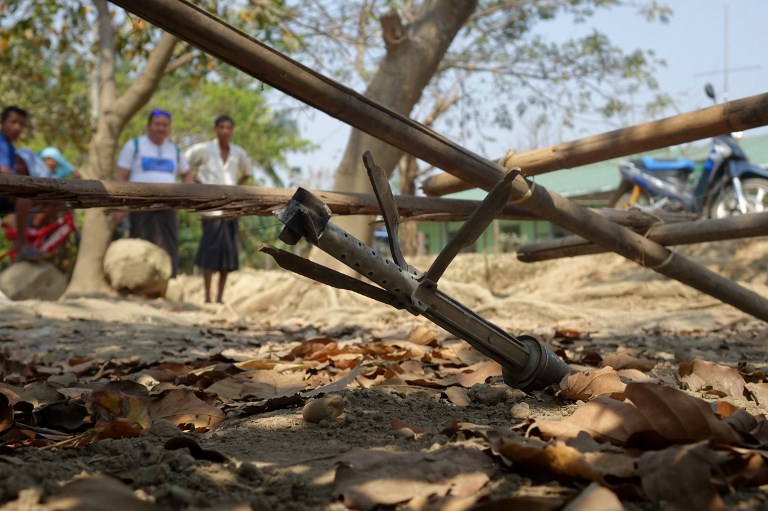
Fighting between the Myanmar army and ethnic Rakhine rebels has escalated in the western state's temple-studded town of Mrauk U, sources confirmed Wednesday, with reports of military jets streaking across the sky.
Riven by complex ethnic and religious divides, Rakhine state was the epicentre of a brutal military campaign in 2017 that forced some 740,000 Rohingya Muslims over the border into Bangladesh.
But the army is now locked in deadly battles with the Arakan Army (AA), a group that claims to represent the state's ethnic Rakhine Buddhists and is vying for more autonomy.
The AA has killed at least 22 police officers since fighting ramped up in January. The government says dozens of rebels have been killed. Thousands of troops have been deployed to try to quell the spreading unrest.
Three weeks ago the fighting reached Mrauk U, the ancient capital of the Rakhine kingdom and a site popular with intrepid tourists for its array of temples and pagodas.
Mrauk U resident Khin Than told AFP by phone the fighting started about 10pm Tuesday night and was worse than last time.
"It's getting serious. People are scared to leave their homes," she said, describing the ground shaking under the roar of jets.
AA spokesman Khine Thukha told AFP they re-entered Mrauk U on Tuesday night to retaliate against artillery bombardments.
"The Burmese military is dropping bombs from jet fighters and helicopters," he said.
Military spokesman Colonel Win Zaw Oo confirmed clashes were taking place but did not release further details. The military has vowed to crush the rebel group, which formed exactly 10 years ago and enjoys widespread support from many ethnic Rakhine.
The AA posted on its website Wednesday a message of congratulations for its 10th anniversary from an allied rebel group based on the other side of the country.
Some 26,000 people have been forced from their homes due to the fighting across Rakhine and in neighbouring areas of Chin state while aid groups estimate some 95,000 people are affected by new restrictions on movement.
There are also reports of indiscriminate attacks and use of landmines, according to the UN Office for the Coordination of Humanitarian Affairs (OCHA). Much of Rakhine is under strict lockdown and information is difficult to verify independently.

